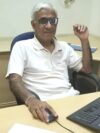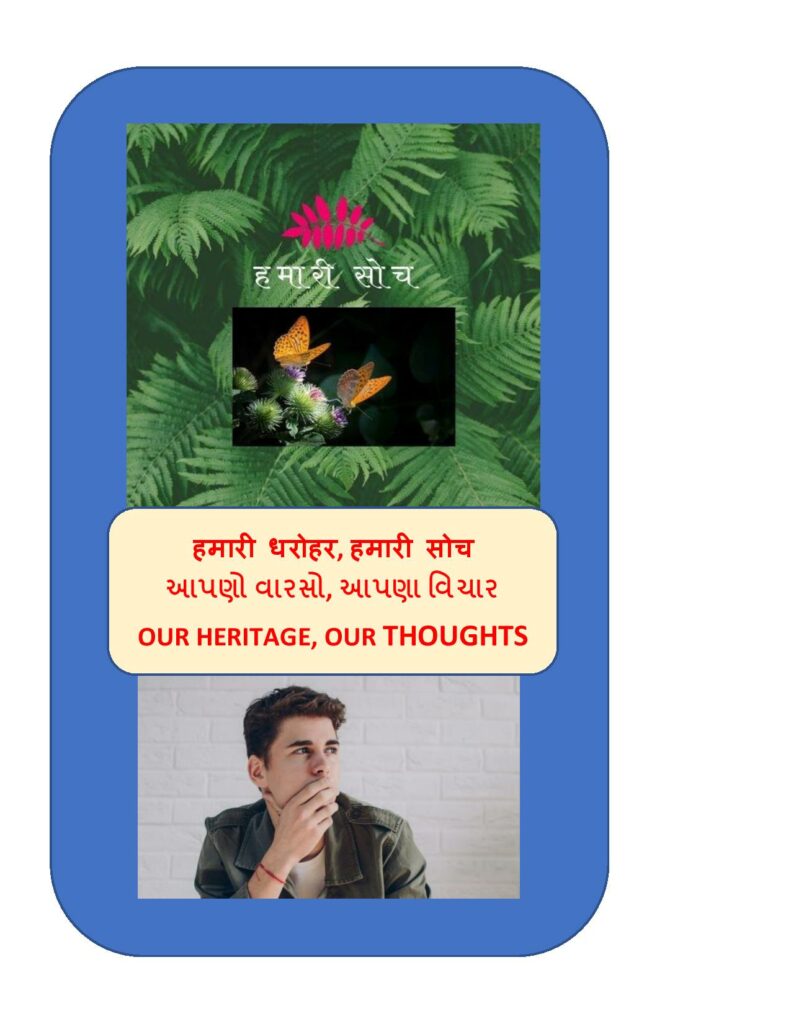Thought Seed – Sep 2020 Issue
LETTERS TO THE EDITOR, 28 Sep 2020
Naresh Jotwani and Bhargav Vyas – TRANSCEND Media Service
Every culture offers, to those who seek, a right way to deal with difficulties. Indian culture is no different. In an attempt to re-discover our own solutions to problems, my colleague Bhargav Vyas and I have started a monthly newsletter we call Thought Seed. We send it out to friends in three languages: English, Hindi and Gujarati. We are happy to share it here with readers of the TMS Weekly Digest.
*************
Sep 2020 Issue – Whether we believe it or not, accept it or not, desire it or not – it is an undeniable fact that our lives are strongly impacted by collective or world consciousness. In turn, this collective or world consciousness is the ongoing outcome of all our thoughts and deeds. Not surprisingly, the thoughts and deeds of good or bad rulers, as well as good or bad experts, have a stronger impact on the collective consciousness.
In the present period, the messages of advertising and communication agencies, and those of alleged public intellectuals (that is, foolish experts), are being overplayed in the public sphere. This has had a negative impact on collective consciousness. Looking more specifically at the current situation, the global pandemic and the economic situation both require some serious and sober thought and matching action.
- We must not become consumed by fear and thereby invite the disease into our lives. Fear is the root of all disease. What we need is full awareness, a positive attitude – and informed compliance with health guidelines. If we have this, our inner strength helps us in overcoming disease. The human body is made of trillions of cells. With focussed inner strength, we regulate and operate our body. Therefore there is surely a way to defeat the infection. For that, however, we need to overcome fear and also remain mindful and cautious.
- The economic system is our own creation. We have created money as a practical device to serve as medium of exchange. With necessity, over time, money has changed form many times – clay tablets, metal, paper, digital and now even virtual. These transformations prove that money is impermanent. Therefore we need not bother too much about fearful jargon such as GDP, fiscal deficit, recession, repo rate and so on. Let such jargon remain the preserve of self-proclaimed experts.
The fact is, when we over-use a resource, unknowingly we become its addicts or slaves. To be masters instead, we need to manage our own economic situation.
So now what practical conclusions can we draw from this background?
We should:
- Keep our assets in good order, regardless of their quantity.
- Order our necessities by priority.
- Renounce unnecessary things and the temptation to show off.
- Renounce the lure of false advertising.
- Throw off laziness of body and mind, and do the kind deeds which we can.
- Have full faith in ourselves and/or in God.
We must remember that this wisdom is in our culture and our heritage. With its right application, we will be able to ride out short term difficulties. Eventually, by finding the root and even the origin of these issues, we will be able to resolve them ourselves.
That is all for now.
*****
Friends,
Your own topical feedback is most welcome, but not comments upon, or words spoken by, any other specific person. If you like the thought shared, you may forward it without hesitation to all your friends who may be interested.
Thank you … Naresh Jotwani, Bhargav Vyas.
*****
_________________________________________________
 Dr. Naresh Jotwani is a semi-retired academic living in India and a member of the TRANSCEND Network for Peace Development Environment. Apart from part-time engagements in engineering education and consulting, he engages in an in-depth, personal exploration of how Gautam Buddha’s profound discoveries and teachings can be applied to the acute problems of modern life.
Dr. Naresh Jotwani is a semi-retired academic living in India and a member of the TRANSCEND Network for Peace Development Environment. Apart from part-time engagements in engineering education and consulting, he engages in an in-depth, personal exploration of how Gautam Buddha’s profound discoveries and teachings can be applied to the acute problems of modern life.
Bhargav Vyas is an engineer by training who has worked in industry for several decades, in Mumbai and Ahmedabad. All along, however, his primary interest has been the search for truth through deep meditation. At present he is living in Ahmedabad with family. Inspiration for writing — prose and poetry — comes to him in meditative state.
Tags: Culture, India, Literature, Solutions
This article originally appeared on Transcend Media Service (TMS) on 28 Sep 2020.
Anticopyright: Editorials and articles originated on TMS may be freely reprinted, disseminated, translated and used as background material, provided an acknowledgement and link to the source, TMS: Thought Seed – Sep 2020 Issue, is included. Thank you.
If you enjoyed this article, please donate to TMS to join the growing list of TMS Supporters.

This work is licensed under a CC BY-NC 4.0 License.
One Response to “Thought Seed – Sep 2020 Issue”
Read more
Click here to go to the current weekly digest or pick another article:
LETTERS TO THE EDITOR:
- Towards Understanding Injustice, Inequality, Violence and Social Problems Blocking Human Progress
- Antiquities, Monuments, Statues, Heritage Sites and Colonial Legacy versus Divergent Cultures, Philosophies, Ethnic Nationalism and Religious Beliefs
- Hate Crime, Xenophobia, Racism, Sinophobia, Islamophobia, Anti-Semitism: Call It What You Will, a Crime Has Been Committed

Thought Seed sounds very interesting. I have not been able to find a website to request the newsletter so would be pleased if someone would contact me on renew@bunya.com.au with details.
For nearly 60 years I have believed the so-called Western way had all the answers but now have come to doubt that. Western-driven physics is based solely on the concepts of length, mass and time, about which we know practically nothing, especially time, which is a complete mystery, at least to me. This means anything based on physics concepts is off to a bad start and is unlikely to teach us anything near the truth (whatever that is).
I will be most interested to follow up Thought Seed.